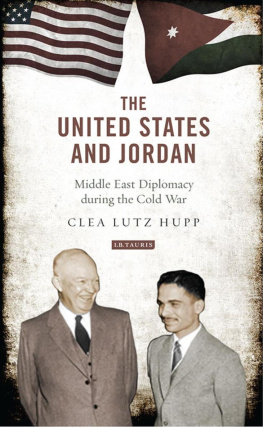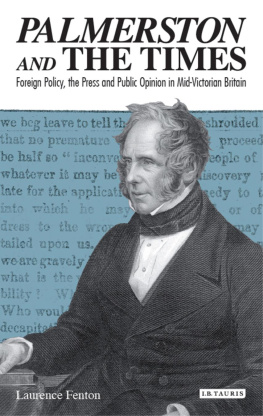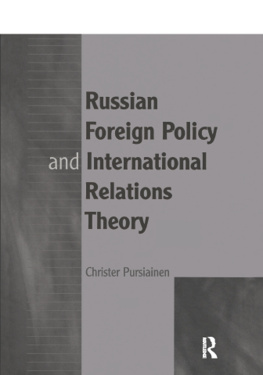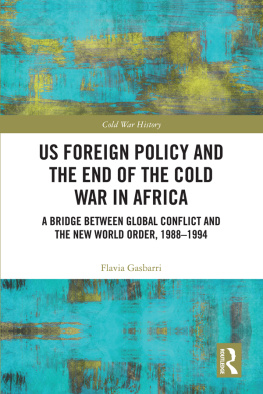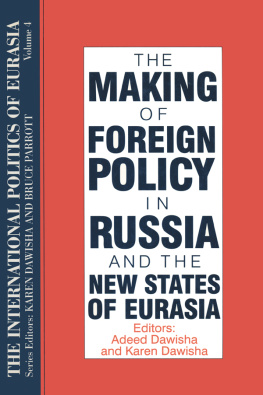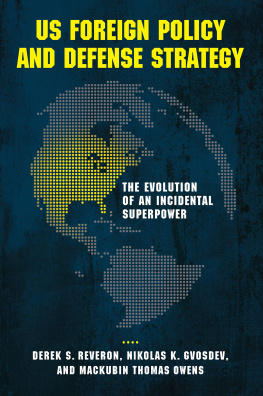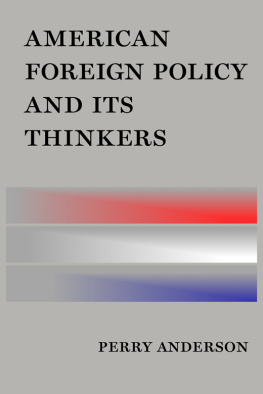WALL STREETS THINK TANK
WALL STREETS THINK TANK
The Council on Foreign Relations and the Empire
of Neoliberal Geopolitics, 19762014

LAURENCE H. SHOUP

Copyright 2015 by Laurence H. Shoup
All Rights Reserved
Shoup, Laurence H.
Wall Streets think tank : the Council on Foreign Relations and the empire of neoliberal geopolitics, 19762014 / Laurence H. Shoup.
pages cm
Includes bibliographical references and index.
ISBN 978-1-58367-551-9 (cloth : alk. paper) 1. Council on Foreign
Relations. 2. United StatesForeign relations19771981. 3. United StatesForeign relations19811989. 4. United StatesForeign relations1989 5. World politics1989 I. Title.
JZ27.C6S56 2015
327.73dc23
2015017149
Typeset in Arno Pro 11/14
Monthly Review Press
146 West 29th Street, Suite 6W
New York, New York 10001
www.monthlyreview.org
5 4 3 2 1
CONTENTS
The moment we... hesitate to tell the truth that is in us, and... are silent when we should speak, the divine floods of light and life flow no longer into our souls. Every truth we see is ours to give the world, not to keep to ourselves alone.
ELIZABETH CADY STANTON
If there is no struggle there is no progress... Power concedes nothing without a demand. It never did and it never will. Find out just what any people will quietly submit to and you have found out the exact measure of injustice and wrong which will be imposed upon them...
FREDERICK DOUGLASS
The truth is the whole.
HEGEL
PREFACE
We may have democracy, or we may have wealth concentrated in the hands of the few, but we cannot have both.
SUPREME COURT JUSTICE LOUIS BRANDEIS
The think tank of monopoly-finance capital, the Council on Foreign Relations is the worlds most powerful private organization. The CFR is the ultimate networking, socializing, strategic-planning, and consensus-forming institution of the U.S. capitalist class. It is the central high command organization of the plutocracy that runs the country and much of the world. The Council is the most important U.S. and global center of deep politics and the deep state that rules behind the scenes, a way that the 1 percent conducts their unrelenting class war against the 99 percent. Despite pretensions to democracy and endless attempts at instructing the world, U.S. democracy is, in reality, largely a fraud, a hollowed-out shell, devoid of any substantive content. The fact is that the U.S. governmentled behind the scenes by the CFRis largely run in an anti-democratic fashion by and for the interests of a financialized capitalist class, their corporations, and the wealthy families that control and benefit from these corporations. No matter who is elected, people from the Council propose, debate, develop consensus, and implement the nations key strategic policies. The deep state, in the form of the CFR, operates behind the scenes, making and enforcing important decisions outside of those publicly sanctioned by law and society. A focus on the Council on Foreign Relations is a key way to understand concretely the central sector of the ensemble of power relations in the United States and its informal global empire.
The globalized system that the Council operates within and influences the development of is monopoly-finance capitalism.centered in the United States, but has powerful allied branches in Western Europe and Japan especially. We say monopoly capitalist system because production is dominated by a relatively few giant multinational corporations able to exercise considerable monopoly power. We say finance capitalist system because financial speculation has become a key way that the stagnation tendencies of the system have been, at least temporarily, overcome. Banking corporations like JPMorgan Chase, Citibank, and Goldman Sachs, as well as nominally industrial conglomerates like General Electric, all enjoy financial super profits under this regime.
The CFR network of people and institutions at home and abroad is extensive and is a key factor in the ongoing forging of a transnational capitalist ruling class. What David Rothkopf (himself a Council member) calls the superclass and Davos Manthe six thousand individuals that he says run the worldhas its main base in the CFR. This preference, along with its mode of operation, has resulted in the Council being less widely recognized than its real influence would suggest.
A big and complex organization, the CFR is unique because it combines a well-staffed, scholarly think tank with a large and active dues-paying membership. It has a long history, many faces, and multiple facets, including publishing Foreign Affairs, a magazine founded in 1922 that the Washington Post has called the bible of foreign policy thinking. It has published tens of thousands of publications of various typesfrom books to blogsduring recent decades. During every decade, it holds thousands of membership meetings starring top political and economic leaders from a wide variety of nations, as well as many leading intellectuals. The Councils work since the mid-1970s has largely focused on creating, planning, promoting, and defending a U.S.-dominated, world-spanning neoliberal geopolitical empire that, due to the resulting mass poverty of billions of people, has been called a criminal process of global colonization by the Brazilian theologian Frei Betto. This imperialist empire is mostly an informal one, but its rule over and exploitation of a considerable part of the world and its people is nevertheless very real.
The CFRs connections to and relationships with economically and politically powerful people and institutions around the world mean that the neoliberal geopolitical worldview of its members and leaders matters a great deal. The Councils leaders select the intellectuals who set the agendas, shape the critical debates, and design the policies that serve the capitalist class. The CFR also works very hard to produce and disseminate ideas about which policies are best so that the Council/capitalist class view gains commonsense acceptance among the public. In this way the framework for policymaking and publicity on a variety of key issues is established. More often than not, CFR leaders and members are the in-and-outers who pass through the revolving door of the federal government to high positions of authority, no matter who is elected. The CFR helps unite the capitalist class community, making it not just a class in itself, but also a class for itself. It achieves this by promoting the exchange of information and policy opinions necessary to foster consensus among the rulers on what the goals and tactics of U.S. foreign, and increasingly domestic, policy should be. As Council people cycle into and out of government, policies are implemented that mostly benefit those at the top of the economic structure, creating the vast wealth and income inequality that exists today.
The need to conduct such planning efforts reflects the fact that capitalism is a system in dynamic disequilibrium, always in a process of breakdown and recovery, and so requires a think tank like the CFR as a strategic guide to map out new directions for the capitalist class and the government itself before the inevitable crises become too acute. The speeding up of change due to the capitalist globalization promoted by the Council and related organizations has added to the complexity of the issues that must be addressed. All of these aspects mean that understanding the behemoth that is the Council on Foreign Relations requires an effort. There are no easy shortcuts to fully understanding this complex organization and its policies.
Next page

